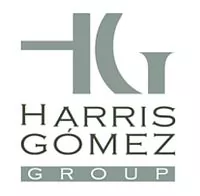What types of expenses does Chile's IRS allow a company to deduct from its financial profit (gross income)?
It is common knowledge that companies must only pay taxes from the profit forming part of its taxable base and that which they have made during a certain tax period. The taxable base corresponds to the financial profit of a tax period, inclusive of adjustments.
In Chile, the corporate tax rate applied to gross income currently stands at 20%. However, Chile's recent tax reform is set to increase this rate to 27% as early as 2017, depending on the tax system chosen.
Companies always want to portray an image of stability and profitability in their financial statements, whilst other taxpayers will usually want to appear to have a lower taxable net income. Therefore, issues commonly arise where taxpayers try to incorrectly deduct expenses that they claim are "necessary to generate (gross) income". Whilst debate surrounds this issue, only the tax authority and the Chilean IRS rulings can determine what expenses fall into this category.
The Chilean Income Tax Law does not adequately define what expenses are "necessary to obtain taxable income". However, the rulings of the Chilean IRS have consistently shown that expense deductions will only be allowed where the following requirements are met: the company; costs of the goods or services required to produce the income; during the relevant period (paid or due), and; provide evidence to backup the incurred expense.
Incorrectly deducted expenses are subject to a 35% penalty tax, regardless of the perpetrator's legal structure. As of 27 September 2012, the tax reform has increased penalties for certain disallowed expense deductions. Consequently, where it is possible to identify the beneficiary of an expense, the beneficiary will be subject to the regular 35% penalty tax to be paid by the company plus an additional 10% to be added on the final taxation base. The result is an overall tax burden of 45% for foreign residents. The Chilean Income Tax Law imposes other regulations on how taxpayers can determine the types of expenses they are entitled to discount for their "Renta Líquida Imponible." Recently, courts have suggested that there must be a close correlation between the expense incurred and the income/profit that it will produce, although this seems rather onerous considering the difficulty in predicting economic outcomes.
Chile's tax reform, published at the end of September, has incorporated various obligations. For example, the IRS states that expenses occurred in a supermarket over 5 UTM (Approx. USD$ 82.00) must be reported to the IRS in order to be deductible from the gross income. The reform's proposed changes have been the source of much debate and controversy over the years. While the controversy continues, the Supreme Court has remained firm on the idea that the necessity of a deducted expense is a fact that must be proved before the courts.
The content of this article is intended to provide a general guide to the subject matter. Specialist advice should be sought about your specific circumstances.

